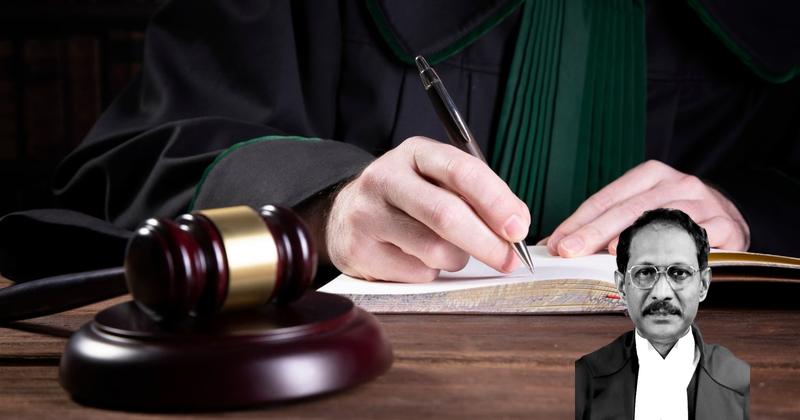First Appeal No.201018/2018 by which the High Court has dismissed the said appeal and has confirmed the order dated 02.04.2018 passed by the learned III Additional District & Sessions Judge, Vijayapur (hereinafter referred to as “trial Court”) in rejecting the application for condonation of delay caused in preferring the application under Section 34 of the Arbitration and Conciliation Act, 1996 (hereinafter referred to as “Arbitration Act”), the original applicant has preferred the present appeal. However, it so happened that extendable / condonable period of 30 days as contemplated in the proviso to Section 34(3) expired on 24.12.2016 on which day the trial Court was closed on account of winter / Christmas vacation. As the application under Section 34 of the Arbitration Act was beyond the prescribed period of provided under Section 34 of the Arbitration Act as well as beyond the condonable period of 30 days, the learned trial Court dismissed the IA No.1 and refused to condone the delay by observing that the period beyond 120 days is not condonable as under the Arbitration Act, maximum period provided for preferring an application under Section 34 is 120 days. By the impugned judgment and order the High Court has dismissed the said appeal by observing that the expression “prescribed period” appearing in Section 4 of the Limitation Act cannot be construed to mean anything other than the period of limitation and therefore, any period beyond the prescribed period, during which the Court or Tribunal has the discretion to allow a person to institute the proceeding, cannot be taken to be “prescribed period”. Shri Shyam Diwan, learned Counsel has submitted that Section 34(3) of the Arbitration Act specifies that the limitation period for filing an application for aside setting the arbitral award under Section 34 is three months from the date on which the party making application has received the award. 3 It is submitted by Shri Shyam Diwan, learned Senior Counsel that not extending the benefit of Section 10 of the General Clauses Act to the appellant in such circumstances leads to an anomalous situation wherein the benefit of statutorily prescribed condonable period is cut Civil Appeal 4 It is submitted that the present case reflects an anomalous situation where Section 4 of the Limitation Act, which only deals with the period of limitation prescribed under the Limitation Act, leaves a vacuum as far as statutory condonable period is concerned. It is submitted that the judgment in the case of Assam Urban (Supra) fails to notice that Section 4 of the Limitation Act, 1963 which deals with the period of limitation prescribed under the Limitation Act, 1963, leaves a vacuum as far as the statutory condonable period is Civil Appeal 7 It is further submitted by Shri Diwan, learned Senior Counsel appearing for the appellant that although the same general principle of “elementary justice” is embodied in both Sections of the two Acts, there is a crucial distinction between the Limitation Act, 1963 and the General Clauses Act, 1897.
9 It is submitted that therefore, reading of Section 10 of the General Clauses Act, 1897 makes it clear that the period in which something is allowed to be done, such as 30 days condonable period provided by proviso to Section 34(3) of the Arbitration Act is also a prescribed period within the meaning of the General Clauses Act, 1897. reported in (2005) 1 SCC 191, this Court has observed and held that every consideration of justice and expediency would require that the accepted principle which underlines Section 10 of the General Clauses Act, 1897 should be applied in cases where it does not otherwise in terms apply. 13 Now, so far as the contention on behalf of the respondent that present proceeding is “any Act or proceeding to which the Limitation Act applies” is a misconceived argument is concerned, it is submitted that the respondents have sought to rely on proviso to Section 10 of the General Clauses Act, 1897.
Also Read: https://newslaw.in/case-type/civil/c-a-no-001144-001146-2011/
It is submitted that this cannot be interpreted to mean that the Limitation Act, in its entirety applies to proceeding under Section 34 of the Arbitration Act and that the present proceedings are an act or proceeding to which the Limitation Act applies. the Limitation Act has no application in the present proceedings, at the same time, the respondent is contending that the benefit of Section 10 of the General Clauses Act, 1897 cannot be given to the appellant, as the present proceeding falls within the ambit of the phrase “any act or proceeding to which the Indian Limitation Act, 1877, applies”. 15 It is submitted that this Court in its order dated 08.03.2021 in suo moto Writ Petition (Civil) No.3/2020, has put a quietus to the artificial distinction between the ‘limitation period’ and ‘grace period’, wherein it extended the benefit of exemption due to COVID 19 to the limitation period as well as the condonable period. It is submitted that therefore non-suiting the appellant in the present instance and denying the benefit of Section 10 of the General Clauses Act, 1897 (with the elementary rule of justice captured in it) will cause a grave miscarriage of justice.
As per Section 34 of the Arbitration Act, “the prescribed period” of 3 months to challenge the award expired on 24.11.2016 and further period of 30 days under the proviso to Section 34(3) of the Arbitration Act expired on 24.12.2016. It is submitted that the High Court has upheld the order of trial Court that the petition under Section 34 of the Arbitration Act was not maintainable for being beyond the “prescribed period” under Section 34(3) of the Arbitration Act. (1)Whether the benefit of Section 4 of the Limitation Act, 1963 is available to a party when the “prescribed period” of 3 months for filing a petition under Section 34(3) of the Civil Appeal No 6810 of 2022 Arbitration Act has already expired and the discretionary period of 30 days under the proviso to Section 34(3) falls on a day when the Court is closed? The proviso to Section 34(3) gives limited powers to the Court, on sufficient cause being shown, to condone delay in filing the application under Section 34(1) only for a maximum period of 30 days, but not thereafter.
It is submitted that thus, in the said decision, this Court has categorically held that Section 4 of the Limitation Act which applies only to “prescribed period” is not attracted when the last date of the “further period” of 30 days mentioned in Section 34(3) of the Limitation Act falls on a day on which the Court is closed. It is submitted that decision of this Court in the case of Assam Urban (Supra) has been affirmed by Three Judges’ Bench of this Court in the case of Sagufa Ahmed (Supra) (Paras 20 – 22). 7 It is submitted that the judgment in the case of Sagufa Ahmed (Supra), in the context of Section 421(3) of the Companies Act, 2013, which provides a prescribed period of 45 days for filing an appeal, and empowers the appellate Tribunal to condone the delay within “further period” not exceeding 45 days.
8 It is submitted that thus, in the case of Sagufa Ahmed (Supra), this Court while affirming Assam Urban (Supra) has held that the expression “prescribed period” appearing in Section 4 of the Limitation Act cannot be construed to mean anything other than the period of limitation. It is submitted that on the date of receipt of award, the party would be well aware of the limitation period under Section 34(3) of the Arbitration Act and ought to diligently secure its right. 11
Now, so far as the applicability of Section 10 of the General Clauses Act, 1897 as per the case of the appellant is concerned, it is vehemently submitted that as such the contention is untenable in light of the proviso to Section 10 of the General Clauses Act, 1897, which specifically excludes the application of this section to any Act or proceeding to which the Indian Limitation Act applies.
It is submitted that therefore in light of the application of the Limitation Act, 1963 applicable to the proceedings under the Arbitration Act (both in Court and in arbitration), Section 10 of the General Clauses Act, 1897 is specifically excluded, and therefore, cannot be relied upon by the appellant. 13
Also Read: https://newslaw.in/case-type/civil/acquisition-of-land-and-deemed-lapse-under-the-act-2013/
It is further submitted that just like Section 4 of the Limitation Act, Section 10 of the General Clauses Act, 1897 also uses the term “prescribed period”. Having heard learned Counsel appearing for the respective parties, a short question which is posed for consideration of this Court is whether in the facts and circumstances of the case, the learned trial Court was justified in not condoning the delay in preferring the application under Section 34(3) of the Arbitration Act, which was filed after the expiry of 120 days but filed on the first day of reopening after the winter / Christmas vacation and in a case where the condonable period of 30 days under Section 34(3) of the Civil Appeal Therefore, the central question in the present appeal is whether when the last day of condonable period of 30 days (under Section 34(3) of the Arbitration Act) falls on holiday or during the Court vacation, would the benefit of Section 10 of the General Clauses Act, 1897 be available? Expiry of prescribed period when court is closed.- Where the prescribed period for any suit, appeal or application expires on a day when the court is closed, the suit, appeal or application may be instituted, Civil Appeal Computation of time.- (1) Where, by any 47 (Central Act) or Regulation made after the commencement of this Act, any act or proceeding is directed or allowed to be done or taken in any Court or office on a certain day or within a prescribed period, then, if the Court or office is closed on that day or the last day of the prescribed period, the act or proceeding shall be considered as done or taken in due time if it is done or taken on the next day afterwards on which the Court or office is open: Provided that nothing in this section shall apply to any act or proceeding to which the Indian Limitation Act, 1877, 48 applies.
(2) This section applies also to all 49 (Central Acts) and Regulations made on or after the fourteenth day of January, 1887.” (emphasis supplied)”
Civil Appeal
No 6810 of 2022 7.1 Section 34(3) of the Arbitration Act and Sections 2(j) and 4 of the Limitation Act, 1963 fell for consideration before this Court in the case of Assam Urban (Supra).
Also Read: https://newslaw.in/case-type/civil/c-a-no-003481-003481-2022/
, this Court has held that an application for setting aside an award filed beyond the period mentioned in Section 34(3) would not be an application “in accordance with sub-section (3) as required under Section 34(1) of the 1996 Act” and Section 5 of the 1963 Act has no application to such application. Lodha, J.) emphasised the mandatory nature of the limit to the extension of the period provided in proviso to Section 34(3) and held that an application for setting aside arbitral award under Section 34 of the 1996 Act has to be made within the time prescribed under sub- section (3) of Section 34 i.e., within three months and a further period of 30 days on sufficient cause being shown and not thereafter. on 02.01.2004, the appellants made application for setting aside the award under Section 34 of the Arbitration Act. Explanation.- A court shall be deemed to be closed on any day Civil Appeal
Case Title: BHIMASHANKAR SAHAKARI SAKKARE KARKHANE NIYAMITA Vs. WALCHANDNAGAR INDUSTRIES LTD. (WIL) (2023 INSC 335)
Case Number: C.A. No.-006810-006810 / 2022



